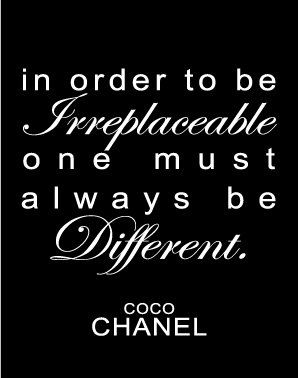
To master the art of loving is to overcome the desire for control and dependency
One of the greatest obstacles to the joy of loving is our desire for control. We sometimes mistake our wish to control others for our loving concern. We may think of ourselves as affectionate, yet our "love" may be a disguised desire to manipulate others for our personal gain. In his writings, Nichiren Daishonin often uses a mythic Buddhist creature called the "devil king of the sixth heaven" as a metaphor for the deep-seated human desire to control others. Indeed, another name for this devil king literally means the "heavenly being who makes free use of others" (Jpn takejizaiten). Through his lively descriptions of this "devil," the Daishonin seems to indicate the importance of becoming aware and vigilant of our desire to use others as a means to our selfish ends. Since dependency is essential to control, the devil king uses various schemes to make people dependent on him. One of his main tools to encourage dependency is manipulation through feigned affection. Despite the general perception of the devil king as a fierce monster, he is adept at appearing affectionate. To lure people and keep them under his control, the devil king is said to make himself look like a Buddha or parent. For example, the Daishonin states, "The devil king of the sixth heaven is endowed with the Buddha's thirty-two features and manifests the Buddha's body" (Gosho Zenshu, p. 114). The Daishonin also quotes from a Buddhist commentary, which states, "So long as a person does not try to depart from the sufferings of birth and death and aspire to the Buddha vehicle, the devil will watch over him like a parent" (The Writings of Nichiren Daishonin, p. 770). In fact, there is even a type of devil in the Buddhist tradition called "the devil of compassion" (Gosho Zenshu, p. 526). Those who are eager to control others often appear affectionate—"taking care of them" or "being nice to them"—with the aim of keeping them dependent materially or emotionally. In Ibsen's play A Doll's House, the seemingly affectionate yet controlling husband Torvald Helmer reminds his wife, Nora, of his "love" expressed in the form of financial support: "My pretty little pet is very sweet, but it runs away with an awful lot of money. It's incredible how expensive it is for a man to keep such a pet" (Act 1, trans. by James McFarlane and Jens Arup).
The truth of love is found in our sincerity to act for the happiness and freedom of others
It is easy to mistake control and dependency for love. The appearance of selfish love, however, like that of the devil king's, is only deceptive, for it is conditional to submission. As the Daishonin points out, the devil king is affectionate "so long as a person does not try to depart from" his control (WND, 770). Some people may give anything to their "loved ones" only to keep them dependent. Those obsessed with control, however, usually find it difficult to wish for the genuine happiness and independence of others. Instead, they would hope to see others deprived in one way or another in order to maintain their sense of superiority. The test of our love, in this sense, lies in our sincerity to encourage and work for the self-reliance and freedom of our loved ones. As the Daishonin states, "The nature of this devil king is to rejoice at those who create the karma of the three evil paths and to grieve at those who form the karma of the three good paths" (WND, 42). Those who thrive on domination may easily show pity for others in suffering, while inwardly delighting at the sight. For the misery of others affords those in control yet another opportunity to show their superiority and thereby remind those suffering of their need for dependency.
At the core of a relationship built on domination and submission lies a profound sense of insecurity and powerlessness on both sides. Those who like to dominate cannot verify the meaning of their existence on their own, so they must derive a sense of power from the subjugation of others. Similarly, those who easily submit to an external authority cannot see their self-worth. So they feel impelled to become part of someone "better" and "stronger" by abandoning their identity and integrity. To such submissive people, control means protection against their own insecurity. Those submissive to an external authority do not see their lives as worthwhile to live for, but they cannot endure the emptiness of having nobody to live for either. So they must seek an external object with which to merge their identity so that they may not face the weakness and emptiness of their own lives. This symbiotic relationship between the dominant and the submissive is disturbed when the submissive party uncovers his or her self-worth and develops the inner strength to become independent. Then the dominant party's insecurity will surface as frustration and anger.
The Daishonin's following descriptions of the devil king illustrate his intense fear and anxiety in this regard: "When we thus draw near to achieving Buddhahood…the devil king of the sixth heaven, lord of the threefold world, reasons: 'If these persons should become Buddhas, I will suffer loss on two counts. First of all, if they free themselves from the threefold world, they will escape my control. Second, if they become Buddhas, their parents and siblings will also depart from the saha world. How can I stop this from happening?'" (WND, 1094). "When an ordinary person of the latter age is ready to attain Buddhahood…this devil is greatly surprised. He says to himself, 'This is most vexing. If I allow this person to remain in my domain, he not only will free himself from the sufferings of birth and death, but will lead others to enlightenment as well. Moreover, he will take over my realm and change it into a pure land. What shall I do?'" (WND, 894).
To love truly, we must free ourselves from the fundamental darkness within
The devil king does not want anyone to attain enlightenment and become free since that would be a painful reminder of his own powerlessness and dependency. The paradox of this devil king, who "dwells at the summit of the world of desire and rules over the threefold world" (WND, 508), is that he is controlled by his own desire to control. The devil king is a ruler who cannot rule himself. The more control he has, the more of it he needs. He is perpetually driven by his inner weakness and insecurity, never feeling satisfied. He is a prisoner of the prison he himself creates. Although he is said to make "free use of others," he is never free in the innermost reality of his life. The devil king, therefore, is incapable of loving. The devil king is said to dwell in the sixth and highest heaven of the world of desire, but his "love," if it could be so called at all, results only in profound unfulfillment and suffering beneath its heavenly pleasure.
As William Blake knew, such selfish "Love seeketh only Self to please, / To bind another to Its delight: / Joys in another's loss of ease, / And builds a Hell in Heavens despite" ("The Clod & the Pebble," ed. David V. Erdman). To love truly, we must be free. To be free, then, we must discover our innate self-worth. In the same sonnet quoted earlier, Shakespeare also wrote, "Let me not to the marriage of true minds / Admit impediments." One of the greatest impediments to our ability to love is a delusion about the truth of our inner life—Buddhahood. Such delusion leads to powerlessness and dependency. The mythic devil king is symbolic of this delusion as the Daishonin says, "The fundamental darkness manifests itself as the devil king of the sixth heaven" (WND, 1113). To shed light on this inner "fundamental darkness" through strengthening our confidence in Buddhahood within our lives, then, is an essential practice for the art of loving.
(Originally published in the World Tribune, Dec. 7, 2001)



















0 comments:
Post a Comment